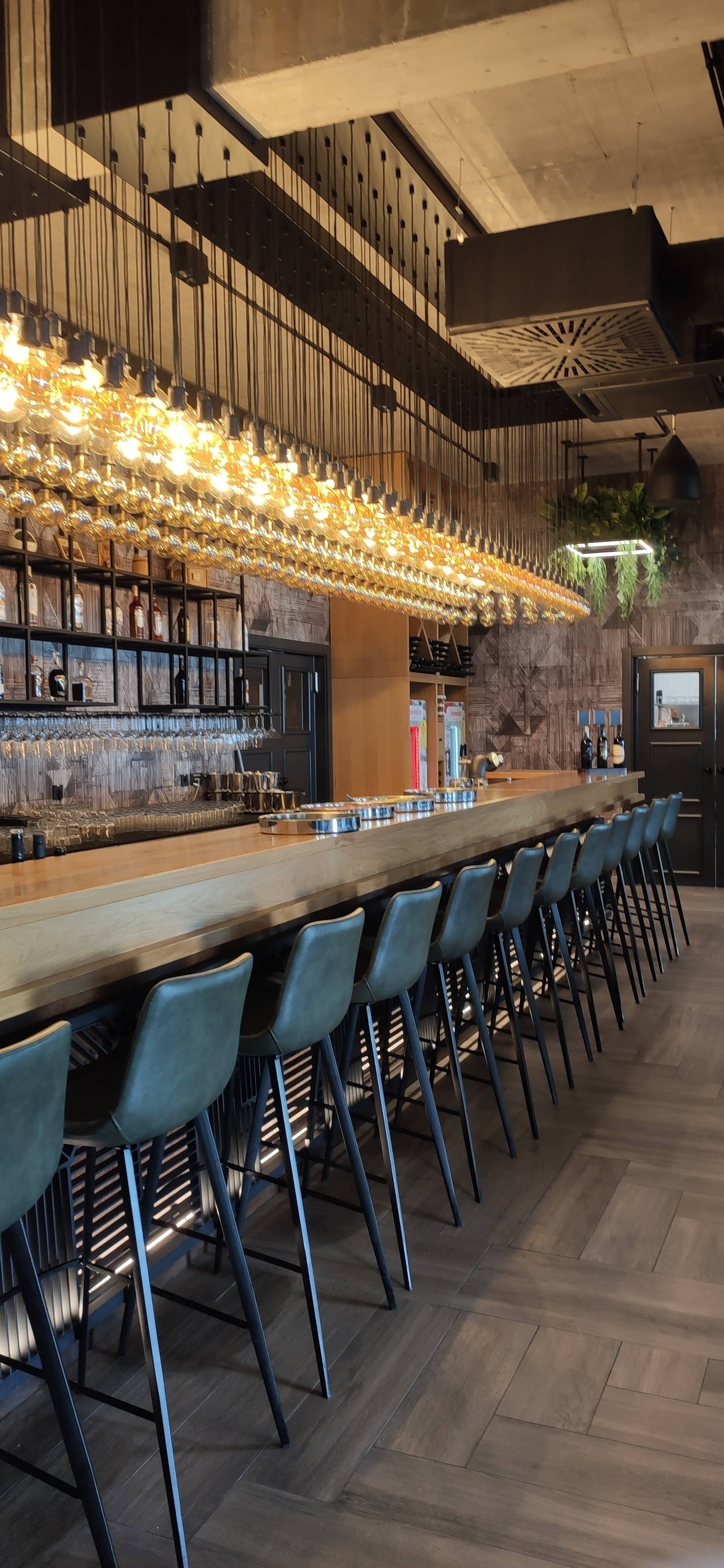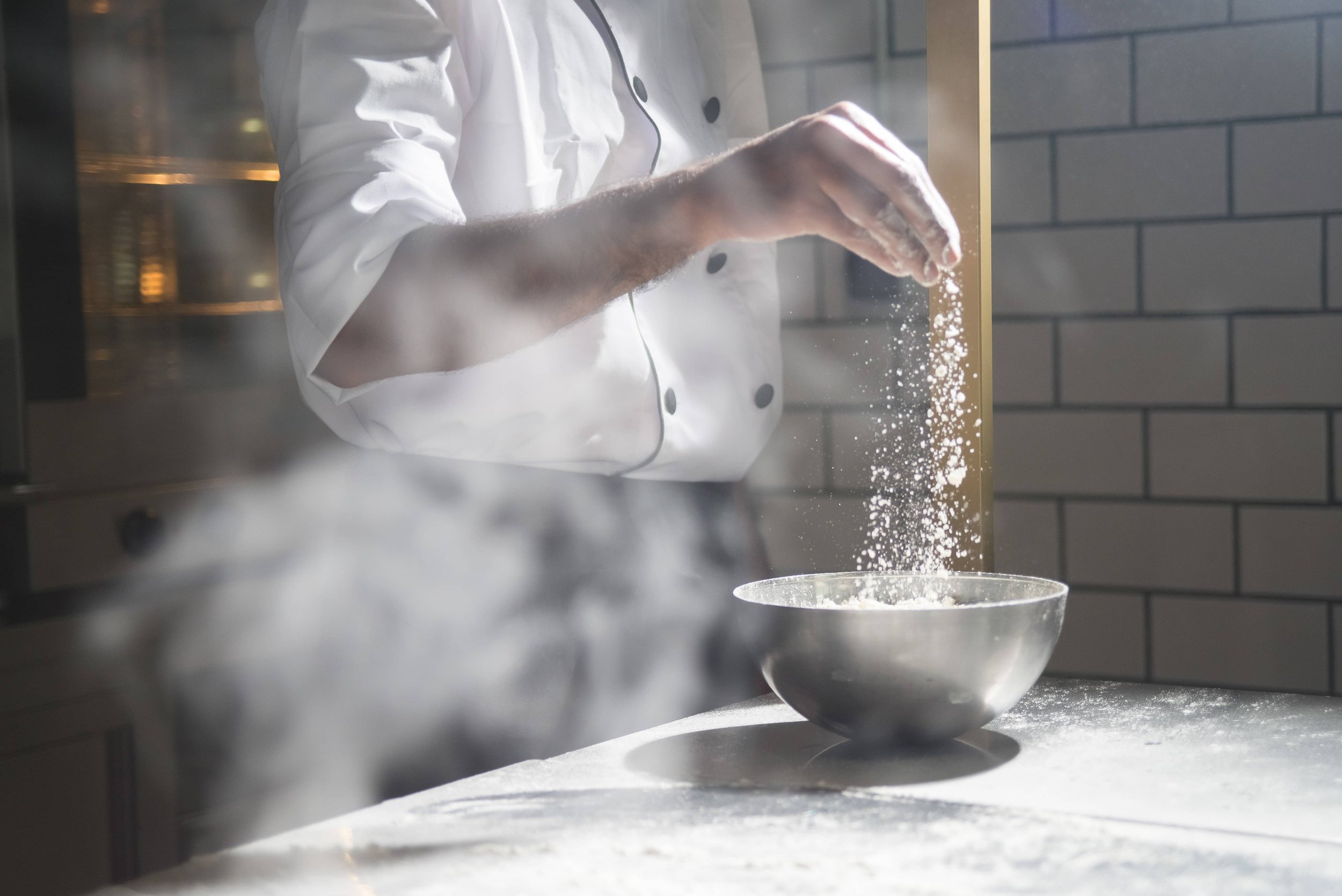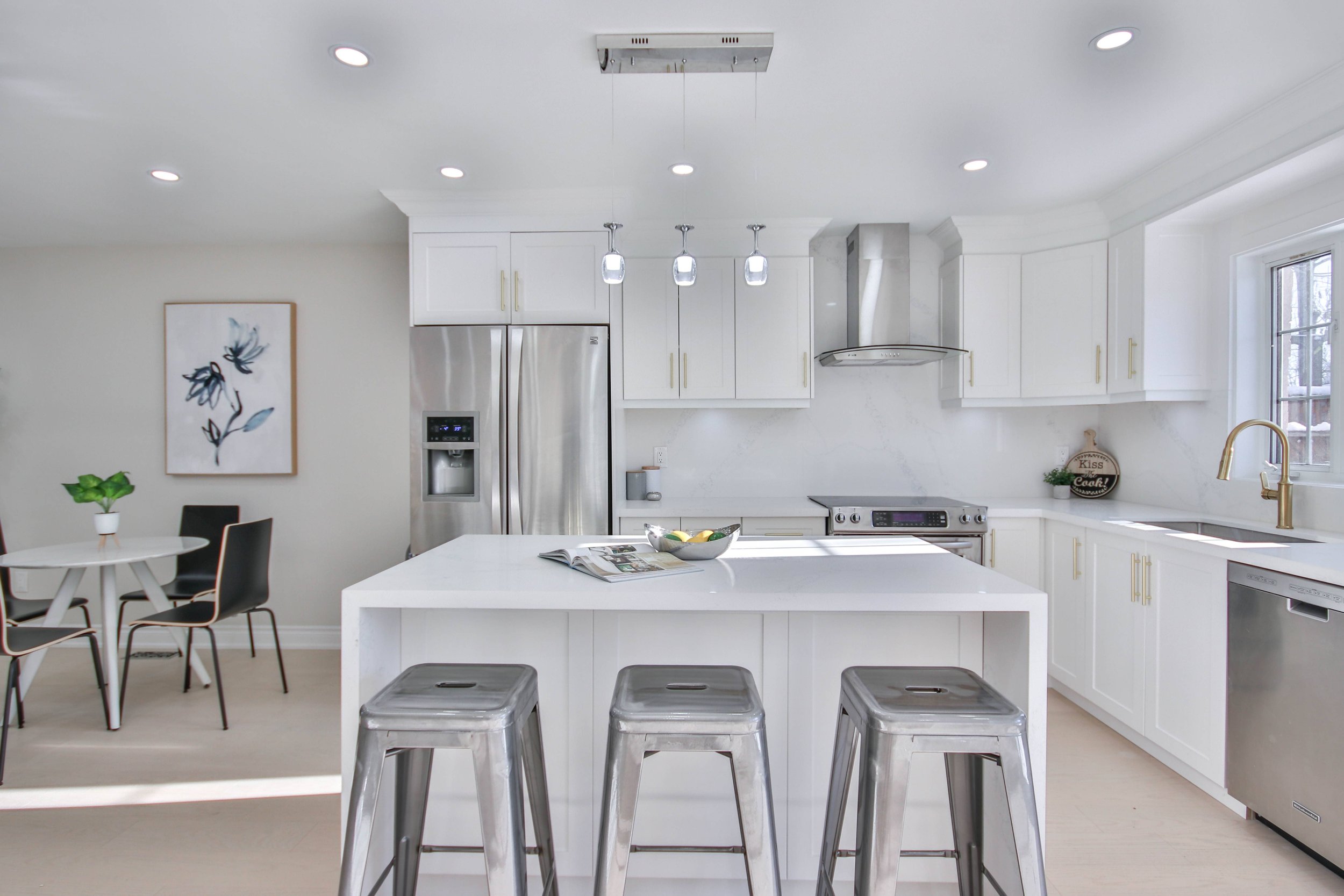Pros and Cons of Concrete Countertops for Kitchens
What Are Concrete Countertops?
Concrete countertops are a unique, stylish addition to any home. They are made from a mix of cement, aggregate, and water and can be customized to suit any taste or décor. Concrete countertops are strong and durable and are resistant to heat, scratches, and stains. They require little maintenance and will last for many years. If you're considering custom concrete countertops, read on to learn more about the pros and cons of this one-of-a-kind material.
Interested in exploring other countertop options? Check out our article on different types of countertops!
How Is A Concrete Countertop Made?
Concrete countertops are typically made by combining a concrete mix with various other ingredients to create a moldable yet strong material. The concrete mix combines water and aggregate, such as sand or gravel, to form a slurry. This slurry is then placed into forms designed to shape the countertop. Once the concrete slab has been set and hardened, the countertop can be removed from the form and finished as desired before installation.
Why Concrete Countertops?
Concrete countertops are popular for many homeowners because they are durable, affordable, and easy to maintain. Concrete is also a versatile material that can be customized to suit any design aesthetic, whether high-end or rustic. When choosing concrete countertops, it is important to consider the pros and cons of this material in order to make an informed decision.
Pros and Cons of Concrete Kitchen Countertops
Pros:
1. Concrete is very strong and durable, so concrete countertops will last a long time.
2. Concrete countertops are highly customizable. Concrete can be artfully molded into any shape, so you can have any kind of countertop you want.
3. Concrete is heat-resistant, so you can put hot pots and pans on it without worry.
4. Concrete is easy to clean; just wipe it down with a damp cloth.
5. Concrete countertops can give your kitchen a unique, modern look.
Cons:
1. Concrete countertops are very heavy, so they may need extra support if installed in an older home.
2. Concrete is an abrasive, porous material, so it can be rough and stain easily from spills if not sealed properly and may need to be resealed with time.
3. Sealing and polishing the surface of concrete countertops can be a difficult and time-consuming process.
4. Because concrete is such a hard material, it can be difficult to cut on without damaging your
Can Concrete Countertops Be White?
Yes, concrete countertops can be white. In fact, they can be any color you want. There are many colors and styles to choose from when it comes to concrete countertops. Therefore, you have a lot of design options when you choose concrete countertops for your home.
How Much Do Concrete Countertops Cost Compared to Other Materials, like Granite, Marble, or Quartz?
The cost of concrete countertops can vary depending on the type of concrete used, the finish, and other factors. However, in general, concrete countertops cost less than granite, marble, or quartz countertops. This is because concrete is a more affordable material than these other materials.
There is no definitive answer to this question, as the cost of concrete countertops can vary greatly depending on a number of factors. Some of the key considerations include the size and complexity of the project, the materials used, the geographical location, and the contractor's overhead and profit margins. Generally speaking; however, concrete countertops can range anywhere from $50 to $150 per square foot.
Quartz can still be an affordable option, as we recently covered in our article on the material.
Will Concrete Countertops Crack?
Generally, concrete counters are very durable and unlikely to crack. However, if they are not properly cared for, they may develop cracks over time. To avoid this, be sure to seal your concrete countertops regularly and avoid exposing them to excessive heat or cold. With proper care, your concrete countertops should last for many years.
In some instances, concrete countertops can develop hairline fractures over time. To prevent this, make sure the countertop is reinforced before it is poured into place.
Can Concrete Countertops Handle Heat?
Concrete countertops are heat resistant, but they can be damaged by sudden changes in temperature. If you're planning to use your concrete countertop for cooking, it's important to take precautions to avoid thermal shock.
Concrete is an extremely durable material, but it's not invincible. Sudden changes in temperature can cause the concrete to crack or chip. When using your concrete countertop for cooking, be sure to use a heat diffuser between the burner and the surface of the countertop. This will help to distribute the heat evenly and prevent damage to your beautiful new concrete countertop.
Certainly, sealers can prevent this, but make sure your sealer for your concrete countertops offers this feature.
Can You Paint Concrete Countertops?
Yes, you can paint concrete countertops, and no, it's not as difficult as you might think. Here's what you need to know about painting concrete countertops.
Concrete countertops are popular for many homeowners because they are durable and easy to maintain. But what if you're tired of the look of your concrete countertops? You can always paint them!
Painting concrete countertops is a relatively simple process. First, you'll need to sand down the countertop's surface to create a smooth finish. Next, you'll need to apply a primer specifically designed for use on concrete surfaces. Once the primer is dry, you can then start painting your countertop with a brush or roller.
Use paint made for concrete surfaces. These paints will adhere better and last longer. Apply the paint in thin coats, letting each coat dry completely before adding the next.
Are Concrete Countertops Right For You?
If you are looking for a unique, durable, and low-maintenance countertop option, concrete countertops may be right for you. With a wide range of color and design options available, concrete countertops can be customized to fit your kitchen's style. In addition, although they come with a higher price tag than some other countertop materials, their long-term durability often makes them a cost-effective choice.
Concrete countertops fit perfectly into industrial and contemporary designs!




